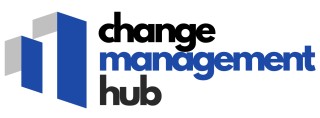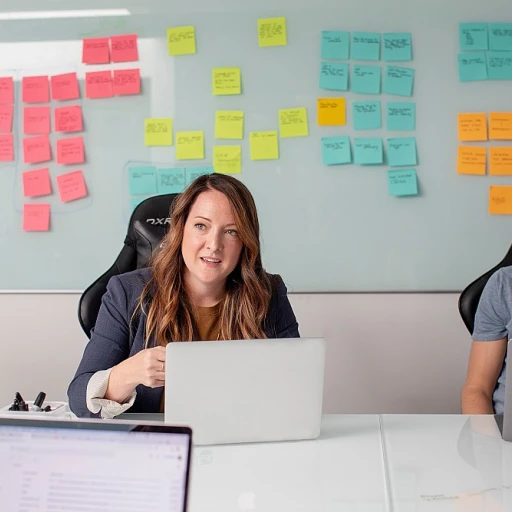Understanding the Role of Change Management
The Crucial Role of Change Management Professionals
Understanding the role of a change management professional is pivotal for any organization seeking to navigate shifts effectively. Their core responsibility revolves around bridging the gap between a change initiative and its successful implementation. This involves anticipating resistance from employees and designing strategies to overcome such challenges, ultimately ensuring a smoother transition.
When tasked with leading a change process, a change manager must engage stakeholders at every level, fostering communication that emphasizes transparency and trust. This communication extends to integrating people, technology, and processes, further solidifying the importance of their role in aligning all elements involved in the change project.
Effective change management requires honing specific skills. From strong decision making and strategic planning, to an innate ability to manage team dynamics and address issues as they arise, a change manager's skills are instrumental in catalyzing success.
The change manager's task doesn't end with the initiation phase. As changes take root, ongoing training and support for team members is vital to maintain momentum and monitor progress. All these elements, when combined, not only ease the pressure on employees but also contribute to the project's overall success.
Key Competencies for Change Managers
Navigating the Change Management Landscape
In the dynamic field of change management, having the right competencies is vital. Success largely depends on a change manager's ability to navigate and execute change initiatives effectively, managing resistance, communication, and team dynamics along the way. Here are some key competencies that every change manager must possess:- Strong Communication Skills: Ensuring clear and effective communication with all stakeholders is crucial. Being able to convey the vision, process, and benefits of the change help build alignment and reduce resistance among team members.
- Adaptability and Flexibility: Change is inherently unpredictable. A competent change manager must demonstrate adaptability to shifting circumstances and an ability to pivot strategies as needed to ensure the success of change projects.
- Problem-Solving and Decision-Making: Change initiatives often encounter obstacles. A skilled change manager must be equipped to address these challenges by making informed decisions quickly and efficiently.
- Leadership and Team Management: The ability to lead and motivate employees through the change process is vital. Harnessing the strengths of team members and facilitating collaboration can significantly ease the change transition.
- Understanding of Organizational Culture: Every organization has a unique culture. Readiness to understand and work within this framework to drive change can dramatically impact the effectiveness of a change initiative.
Common Interview Questions for Change Management Roles
Interview Questions That Delve into the Heart of Change Management
In a change management interview, certain questions aim to assess a candidate's familiarity with the change process and their ability to manage change initiatives effectively. These questions not only gauge an interviewee’s technical skills but also their capacity to address resistance and engage all stakeholders within a project.
Employers look for candidates who can demonstrate proficiency in designing and implementing change strategies. Typical questions may include:
- Describe a time you led a change initiative. What strategies did you employ to ensure stakeholder buy-in?
This question is tailored to assess your communication skills and your ability to manage team members through a transition. An effective answer helps interviewers ascertain how well you engage with employees and tackle resistance to change. - How do you prioritize change initiatives when managing multiple projects?
Prioritization is key in change management roles. A strong response will highlight your decision-making skills and how you balance competing demands from different projects. - Can you share an example where a change project didn't go as planned? What was your approach?
This question evaluates your ability to manage unforeseen challenges and your capability to pivot strategies quickly. Being able to illustrate success in navigating a setback with a focus on lessons learned can be a strong indicator of your resilience.
Being well-versed with these change management interview questions can significantly enhance your performance and illustrate your comprehensive understanding of the role you are applying for. Coupling technical knowledge with real-world applications can set you apart from the competition, especially in interviews designed to evaluate both strategic thinking and adaptability.
Behavioral Questions to Gauge Adaptability
Probing for Adaptability and Flexibility in Change Management
Navigating resistance is a crucial part of managing change, so understanding how candidates adapt to evolving situations is key in an interview setting. This section explores behavioral interview questions that help uncover a candidate’s capacity for flexibility and adaptability, essential skills for any change manager. First and foremost, interview questions must focus on identifying instances where candidates demonstrated their ability to adapt when faced with changing circumstances. Consider asking about past experiences dealing with resistance from stakeholders or project team members:- "Describe a time when you encountered resistance to change from employees. How did you handle the situation, and what was the outcome?"
- "In a change initiative you led, what strategies did you employ to manage change resistance and ensure project success?"
- "Can you give an example of a decision you made during a change project that didn't go as planned? What did you learn from it, and how would you approach it differently now?"
Evaluating Strategic Thinking Through Scenario-Based Questions
Scenario-Based Questions to Test Strategic Thinking
When interviewing for a change management role, it’s crucial to evaluate a candidate’s strategic thinking abilities. These skills are essential for effectively guiding a team through organizational change. Scenario-based questions are a powerful tool to assess how well a candidate can navigate complex situations, make informed decisions, and manage change initiatives.
Here are some effective scenario-based interview questions that can help gauge a candidate’s strategic thinking:
- How would you approach a situation where a major change initiative is met with resistance from key stakeholders? This question assesses the candidate’s ability to identify resistance change and develop strategies to overcome it. Look for answers that demonstrate strong communication skills and an understanding of stakeholder management.
- Describe a time when you had to manage a change project with limited resources. How did you ensure success? This question evaluates the candidate’s problem-solving skills and ability to make strategic decisions under constraints. Effective answers will highlight creativity, resourcefulness, and the ability to prioritize tasks.
- Imagine a scenario where a change process is not delivering the expected outcomes. What steps would you take to address this? This question tests the candidate’s ability to analyze a situation critically and implement corrective actions. Look for responses that show a methodical approach to identifying issues and making necessary adjustments.
These questions not only help in assessing a candidate’s strategic thinking but also provide insight into their ability to adapt and lead through change. A strong candidate will demonstrate not only the skills needed to manage change but also the foresight to anticipate potential challenges and opportunities.
Assessing Cultural Fit and Leadership Style
Deciphering Cultural Fit and Leadership during Interviews
When hiring for change management positions, understanding a candidate's potential cultural fit and leadership style is crucial. This evaluation assists in ensuring that the new change manager will effectively align with the organization's values and drive the change initiatives forward. To thoroughly assess cultural fit and leadership abilities during the interview, consider incorporating questions tailored to these specific areas:- Discuss how you have managed changes in diverse teams. How candidates answer provides insight into their ability to work within various cultural models and adjust their leadership style accordingly.
- Describe a time when you faced resistance to a change initiative from stakeholders or team members. With this question, you can gauge how the candidate's leadership approach either helped resolve resistance effectively or necessitated a change in tactic.
- How do you ensure that your communication style resonates with a culturally diverse group of employees? The response will reveal their sensitivity to diverse communication styles and their ability to adapt their messaging for successful change management.












